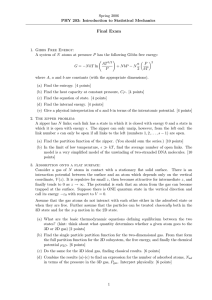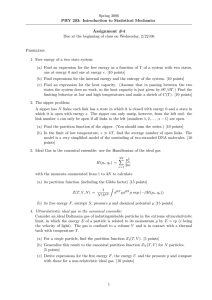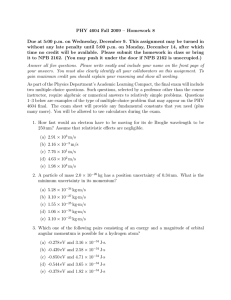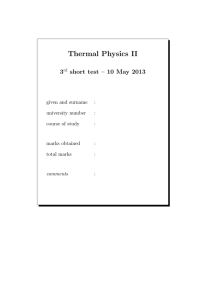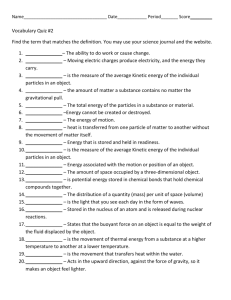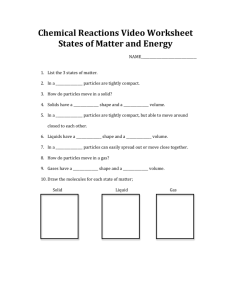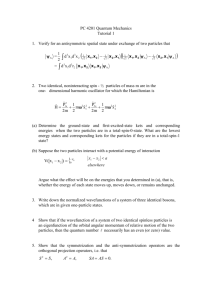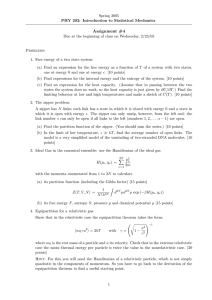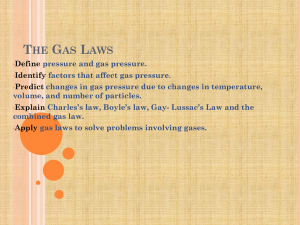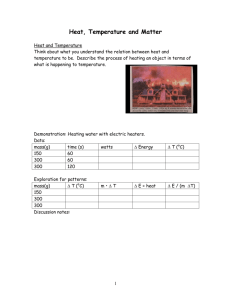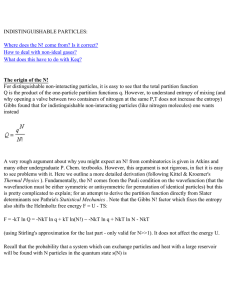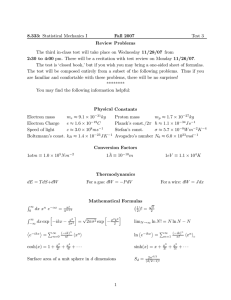Midterm Exam
advertisement
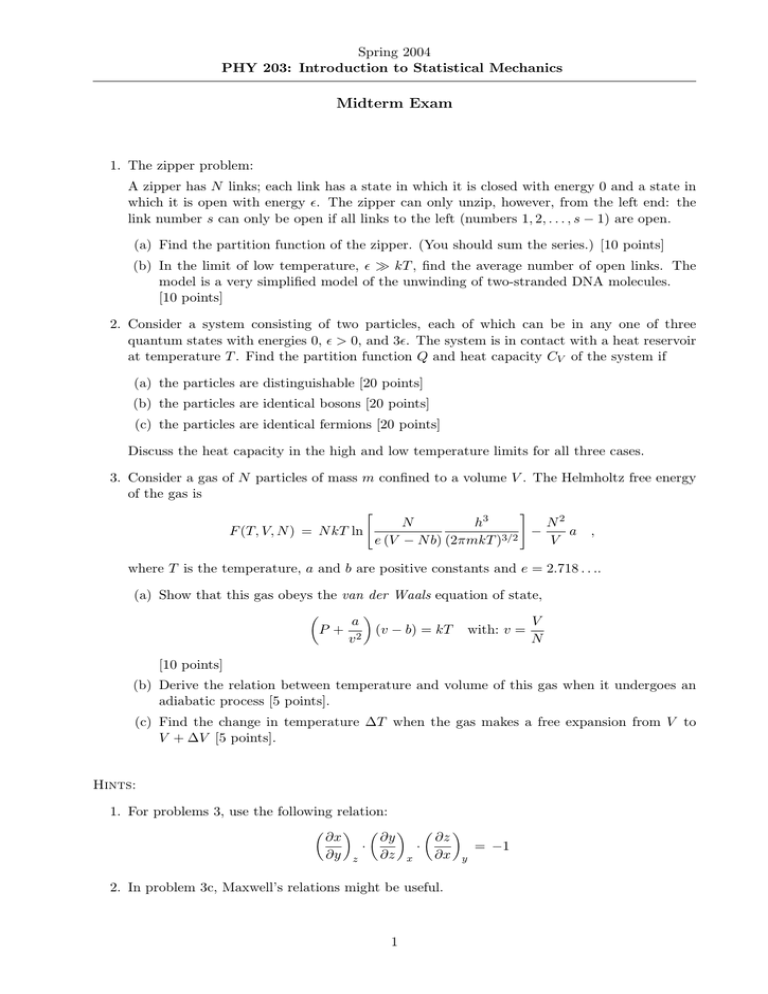
Spring 2004 PHY 203: Introduction to Statistical Mechanics Midterm Exam 1. The zipper problem: A zipper has N links; each link has a state in which it is closed with energy 0 and a state in which it is open with energy . The zipper can only unzip, however, from the left end: the link number s can only be open if all links to the left (numbers 1, 2, . . . , s − 1) are open. (a) Find the partition function of the zipper. (You should sum the series.) [10 points] (b) In the limit of low temperature, kT , find the average number of open links. The model is a very simplified model of the unwinding of two-stranded DNA molecules. [10 points] 2. Consider a system consisting of two particles, each of which can be in any one of three quantum states with energies 0, > 0, and 3. The system is in contact with a heat reservoir at temperature T . Find the partition function Q and heat capacity CV of the system if (a) the particles are distinguishable [20 points] (b) the particles are identical bosons [20 points] (c) the particles are identical fermions [20 points] Discuss the heat capacity in the high and low temperature limits for all three cases. 3. Consider a gas of N particles of mass m confined to a volume V . The Helmholtz free energy of the gas is # " N2 N h3 − a F (T, V, N ) = N kT ln e (V − N b) (2πmkT )3/2 V , where T is the temperature, a and b are positive constants and e = 2.718 . . .. (a) Show that this gas obeys the van der Waals equation of state, a P + 2 (v − b) = kT v with: v = V N [10 points] (b) Derive the relation between temperature and volume of this gas when it undergoes an adiabatic process [5 points]. (c) Find the change in temperature ∆T when the gas makes a free expansion from V to V + ∆V [5 points]. Hints: 1. For problems 3, use the following relation: ∂x ∂y · z ∂y ∂z · x ∂z ∂x 2. In problem 3c, Maxwell’s relations might be useful. 1 = −1 y
